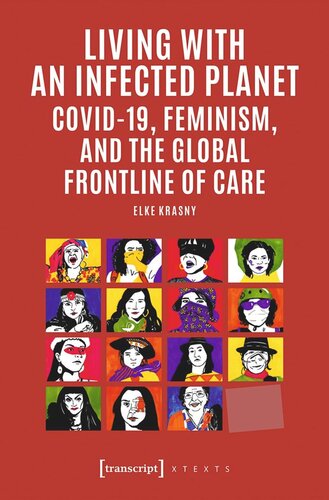

Most ebook files are in PDF format, so you can easily read them using various software such as Foxit Reader or directly on the Google Chrome browser.
Some ebook files are released by publishers in other formats such as .awz, .mobi, .epub, .fb2, etc. You may need to install specific software to read these formats on mobile/PC, such as Calibre.
Please read the tutorial at this link: https://ebookbell.com/faq
We offer FREE conversion to the popular formats you request; however, this may take some time. Therefore, right after payment, please email us, and we will try to provide the service as quickly as possible.
For some exceptional file formats or broken links (if any), please refrain from opening any disputes. Instead, email us first, and we will try to assist within a maximum of 6 hours.
EbookBell Team

4.7
66 reviewsLiving with an infected planet has led to an unprecedented crisis of care. Since the outbreak of the coronavirus, life-making and death-making are at the center of global attention. Pandemic terms include COVID-19 response, frontline work, genocidal pandemic, lockdown, mask mandate, shadow pandemic, social distancing, vaccine wars, or virus racism. Elke Krasny presents a feminist mapping of key terms and key images defining the ›pandemicscape‹, looking at a wide range of sources including media coverage, policy by the WHO, the UN or the IMF, recommendations by NGOs and feminist organizations, but also ways of seeing care in photography and painting. Arguing against going back to normal, she outlines a new global international care order.